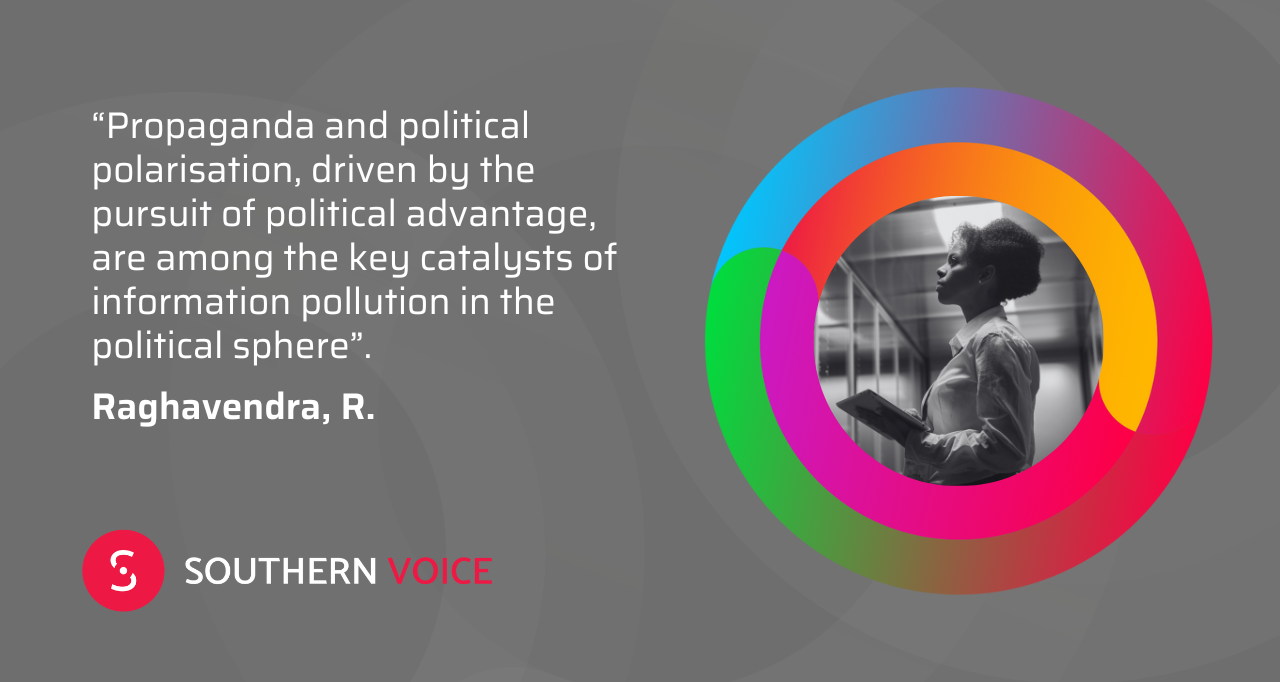South-South Global Thinkers is a global coalition of think tank networks that facilitates the sharing of knowledge, expertise, and perspectives…
Information integrity refers to the accuracy, consistency, and reliability of information (United Nations, 2023). It is threatened by information pollution, which takes various forms, including misinformation, disinformation, malinformation, fake news, and hate speech. While information pollution has a long history, generative artificial intelligence (GAI) has added a new dimension to the problem. GAI is unregulated and freely available, making it easy to create and spread false information. This creates an urgent need to improve monitoring and accountability mechanisms aimed at safeguarding information integrity. This paper analyses the consequences of information pollution in the spheres of politics and health in India and discusses key lessons for the Global South. Based on a literature review and key informant interviews, the paper recommends practical solutions: multi-stakeholder engagement, oversight mechanisms, and accountability guidelines for intermediaries. The article also argues for the creation of a Global South consortium to combat information pollution and calls for enhanced global collaboration on prebunking, media and information literacy, and fact-checking mechanisms.


